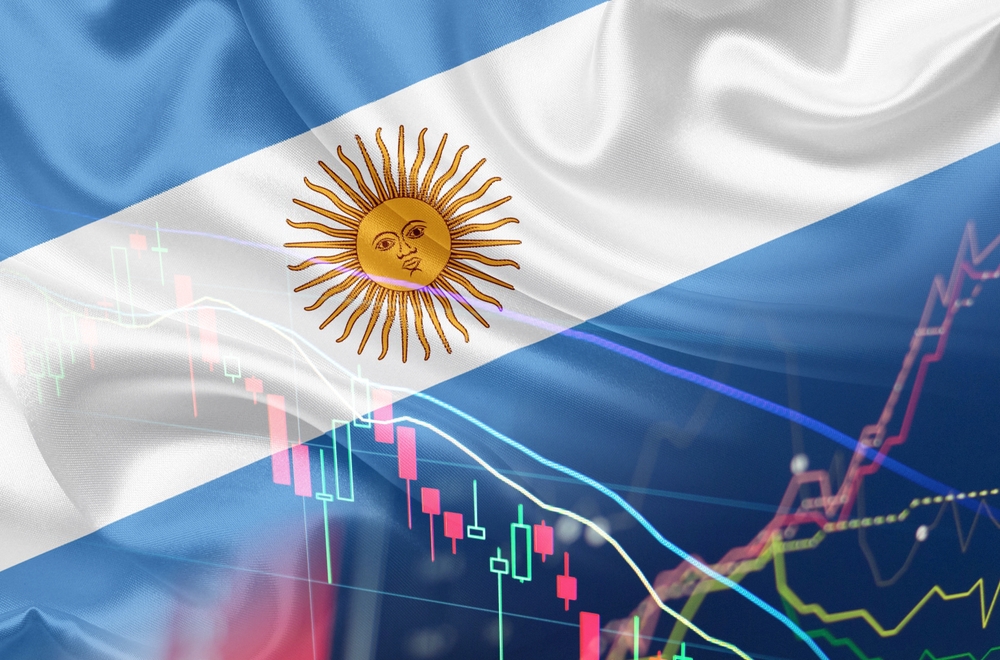Argentine President Javier Milei’s first year tackling inflation has been mixed, with the annual rate still exceeding 200%. However, investor sentiment indicates optimism for substantial improvement in the coming year. Market data suggests a potentially sharp reduction in inflation, with monthly rates predicted to dip to 1.9% and annual figures possibly falling to 25%, as reported by local brokerage PPI. This projection would be markedly below economists’ consensus of 35% and the lowest annual rate Argentina has seen in seven years.
Current Inflation Landscape
Argentina has been grappling with triple-digit annual inflation for nearly two years. While the peak annualized rate hit 289.4% in April, it dropped to 209% in September, still far above the 138% rate recorded in the previous year. The downward trend, however, has been enough to spark cautious optimism. “People had given Milei a very clear mandate: lower inflation, no matter what,” noted Barbara Guerezta, a strategist at Delta Asset Management. “Milei knows he has to fulfill a campaign promise and he is doing it.”
October estimates from consulting firm Orlando Ferreres & Asociados put the monthly inflation rate at 2.7%, which would be the lowest in three years, adding to the sense of cautious hope among investors.
Market Signals and Investor Sentiment
The bond market’s break-even rates, reflecting the difference between fixed-rate and inflation-linked bonds, hint at a brighter outlook for inflation than economists predict. The Central Bank’s survey places annual inflation at 35% in 2025, while Delta Asset Management forecasts it could drop as low as 20%. However, the question remains: is this too optimistic?
Memories of 2017: A Reminder of Risks
For investors, the stakes are high. “This trade was based on total confidence in the government’s plan,” said Alejo Costa, chief economist at Max Capital. A key concern is whether President Milei’s policies might inadvertently make the Argentine peso too strong, which could invite devaluation risks, especially as the U.S. dollar rallies following Donald Trump’s election win.
Investor Emiliano Merenda, president of Pharos Capital, exemplifies this caution. Despite making a 35% profit on a peso-backed loan in early 2023, he remains wary. “Every night I go to sleep thinking if the time has come to unwind my investment position,” Merenda admitted, reflecting broader market fears of a potential foreign exchange event reminiscent of 2017’s carry trade bust and subsequent 50% peso devaluation.
Weighing Scenarios and Strategic Moves
Some traders have already adjusted their portfolios to mitigate risk. Carolina Schuartzman, director of sales and trading at Columbus Investment Banking, has moved out of fixed-rate peso holdings in favor of inflation-linked bonds. “I see the market still very positive and betting on fixed rates in pesos, but I am more comfortable unwinding and going to inflation-linked bonds,” she said. Schuartzman, while not foreseeing the same exchange-rate issues as in 2017, still views a 25% inflation rate as overly ambitious given ongoing currency controls and unresolved price imbalances.
For Merenda and others, current conditions present a complex trade-off. The yields on peso-denominated notes range from 30% to 50% annually, surpassing expectations for inflation and potential devaluation rates. “For Argentine investors, the trade looks good. It’s not over,” said Max Valores’s Costa, suggesting that the potential for profit remains despite underlying risks.
The Road Ahead for Milei’s Administration
President Milei’s challenge is not only to deliver on his anti-inflation promise but also to navigate the pressures of currency controls and economic policy shifts. With local debt predominantly held by domestic investors and the absence of a fiscal deficit, 2024 may see different dynamics than in past crises. However, any misstep could bring volatility back to the forefront, testing investor confidence and economic stability.
As investors watch Argentina’s evolving economic landscape, there is guarded hope for significant progress on inflation. Yet, the specter of past currency challenges and policy miscalculations looms large. While current market strategies appear favorable, the path remains uncertain, highlighting the delicate balance President Milei must maintain to secure both economic recovery and investor trust.


